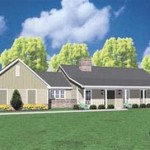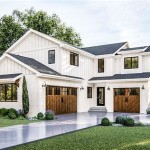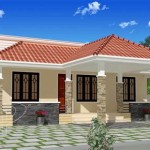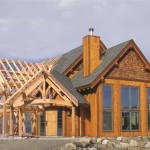House Plan Layout and Design
Designing a house plan is a crucial step in the construction process. It involves meticulously planning the layout, flow, and aesthetics of your future home. Whether you're building a new home from scratch or renovating an existing one, careful consideration should be given to create a space that meets your needs and aspirations.
Layout Considerations
The layout of your house plan should prioritize functionality and ease of movement. Consider the following aspects:
- Traffic Flow: Ensure that people can move seamlessly throughout the house without creating bottlenecks or feeling cramped.
- Room Placement: Group related rooms together, such as bedrooms and bathrooms, to facilitate convenience and privacy.
- Transitions: Plan for smooth transitions between indoor and outdoor spaces, as well as between different levels of the house.
Design Elements
In addition to layout, the design elements of your house plan play a significant role in creating a visually appealing and comfortable living environment:
- Exterior Appearance: Choose a style that aligns with your preferences and harmonizes with the surrounding neighborhood.
- Windows and Doors: Strategically place windows and doors to maximize natural light, ventilation, and views.
- Materials and Finishes: Select materials and finishes that complement the design aesthetic and reflect your taste.
Functional Considerations
Practicality is paramount in house plan design. Address the following functional aspects:
- Storage: Plan for adequate storage space throughout the house to keep belongings organized.
- Utilities: Determine the location of essential utilities, such as plumbing, electrical, and HVAC, ensuring they meet code requirements.
- Accessibility: Consider accessibility features if necessary, such as ramps, wider doorways, and walk-in showers.
The Process
Creating a house plan is an iterative process that involves:
- Consultation: Collaborate with an architect or designer to discuss your vision and requirements.
- Drafting: Prepare initial sketches and drafts that outline the layout and design concept.
- Revisions: Revise the plans based on feedback and make adjustments to optimize the design.
- Finalization: Approve the final plans and proceed to the construction phase.
Conclusion
A well-conceived house plan layout and design is the foundation of a successful construction project. By addressing functional, aesthetic, and practical considerations, you can create a home that meets your unique needs and provides a comfortable, inspiring, and enjoyable living space for years to come.

Small House Design 2024005 Pinoy Eplans Modern Plans Floor

Small House Plans Popular Designs Layouts

Floor Plans Types Symbols Examples

House Plans How To Design Your Home Plan

Small House Design Shd 2024007 Pinoy Eplans One Y Bungalow Plans Floor

House Plans How To Design Your Home Plan

House Plans How To Design Your Home Plan

Top 5 Modern House Plans With Photos Floor Archid

Floor Plans Types Symbols Examples

Floor Plan Creator And Designer Free Easy App








